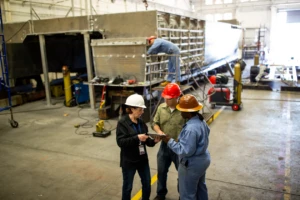Technology is revolutionizing education for medical students

Health technology is very exciting if you are a medical student. For me, health tech is where I see myself going after graduation-for so many reasons. I have interned at four startup companies and have a bit of experience at a few more, and the ideas that are buzzing around the workplaces of these startup health tech organizations are incredibly exciting.
I am currently in my second year of studying medicine at Imperial College London, England. I and my current cohort of students were the generation that began to grow up with technology. I remember my days in primary school getting so excited about using the computer in the school every Thursday afternoon. By the time I had started studying medicine in 2013 the technology world was amazing.
This is why I think being a medical student right now is so exciting. Things are changing now more than ever in the health industry. Hospitals and clinics are adapting and beginning (very slowly in the UK, I must add) to implement new technology to benefit their institutions. Even more interesting, the medical curriculum is shifting to a more e-learning, interactive approach.
I have seen firsthand the benefits that all this new tech in healthcare is bringing to the medical training process. Starting in September 2015, Imperial College London will be rolling out free tablets across the medical school after a successful tablet trial. This means that students from their first year on will have the ability to participate in interactive learning. Ultimately this should scale up access and usage of med tech apps within the school. A bonus is that the technology will be free for all of us-important because most of us are completely broke and wouldn’t be able to afford a tablet otherwise. I can only begin to imagine the incredible benefits of using a tablet within the medical learning process and can’t wait to share with you all the feedback from it. Whether students use the tablets to search for diseases, play interactive anatomy games, or use e-books, the additional learning will be very useful and beneficial to both the students and their future patients.
One of the benefits I have seen of having this wide access to medical apps is the ability to have patient simulation before practising on real patients. I completed an internship in Summer 2014 at Touch Surgery-a really innovative med tech startup in London. Touch Surgery is an app that allows surgical trainees to rehearse procedures via cutting-edge animations. It breaks down surgeries into simple steps to help with cognitive rehearsal-all learning done on a mobile device! Gone are the days that medical students get thrown in the deep end with real patients’ lives at risk; we can now pretty accurately practise our skills and assess our knowledge via simulations! Phew.
As wearables and all of our med tech software begin to ramp up, it is often easy to concentrate on the benefits to the patients. Of course this is key, but the benefits of all this new technology to training medical professionals are also enormously beneficial. I am so gripped and will be keenly following the developments as we now all launch, slowly but surely, into the technical revolution of medical education.
How is medical technology changing the experience of medical students? Tell us your thoughts! Email, Facebook, or Twitter.




